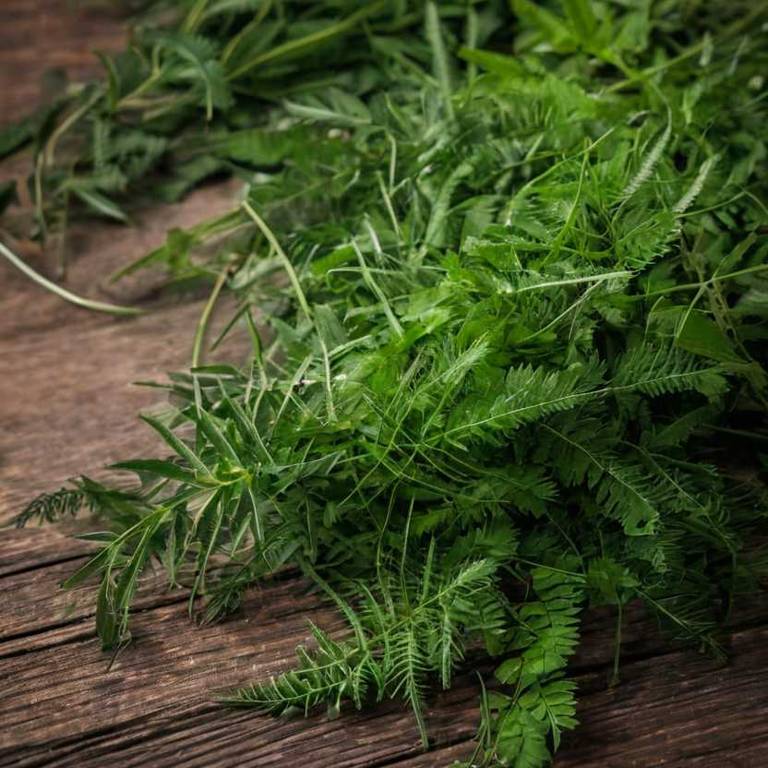By Leen Randell
Updated: Jul 06, 2024
10 Health Benefits Of Mimosa Pudica (Sensitive Plant)

Mimosa pudica, also known as sensitive plant, has health benefits such as anti-inflammatory and antioxidant properties.
These medicinal properties can help reduce pain and swelling, as well as protect against cell damage and oxidative stress.
For example, the plant's leaves and stems have been traditionally used to treat fever, skin irritations, and wounds, and have even shown potential in reducing inflammation and improving wound healing rates.
This article explains in details the 10 best health benefits of Mimosa pudica.
1. Speeds up wound healing
Mimosa pudica speeds up wound healing because it contains various bioactive compounds, such as flavonoids and phenolic acids, which exhibit anti-inflammatory and antimicrobial properties.
These compounds help to reduce swelling, prevent infection, and promote collagen synthesis, thereby accelerating the healing process.
Additionally, the plant's extracts have been shown to stimulate the production of growth factors, which further enhance tissue repair and regeneration.
2. Alleviates skin irritations
Mimosa pudica alleviates skin irritations because of its potent anti-inflammatory and antioxidant properties.
The plant's extracts have been shown to reduce redness, swelling, and itching associated with skin conditions such as eczema, acne, and sunburns.
Additionally, Mimosa pudica has antibacterial and antifungal properties that help combat infections and promote wound healing, making it an effective natural remedy for soothing irritated skin.
3. Reduces inflammation
Mimosa pudica reduces inflammation because of its unique chemical composition.
The plant contains flavonoids and saponins, which have potent anti-inflammatory properties that help to reduce swelling and pain.
These compounds work by inhibiting the production of pro-inflammatory molecules and promoting the synthesis of anti-inflammatory cytokines, thereby alleviating inflammation and associated symptoms.
4. Combats bacterial infections
5. Treats fungal infections
Mimosa pudica treats fungal infections because of its unique bioactive compounds.
The leaves and stems of the plant contain flavonoids, phenolic acids, and terpenoids that have antifungal properties, which help to inhibit the growth of fungi and prevent them from spreading.
These compounds also exhibit anti-inflammatory and antioxidant activities, making Mimosa pudica a promising natural remedy for treating fungal infections such as athlete's foot, ringworm, and candidiasis.
6. Eases menstrual cramps
Mimosa pudica eases menstrual cramps because its bioactive compounds and flavonoids possess potent anti-inflammatory and analgesic properties.
When consumed as a supplement or applied topically, these compounds help reduce prostaglandins, which are hormone-like substances that cause uterine contractions and lead to menstrual cramp pain.
Additionally, Mimosa pudica's natural relaxants promote calmness and alleviate stress, further contributing to its ability to alleviate menstrual discomfort.
7. Regulates menstrual cycle
Mimosa pudica regulates menstrual cycle because of its unique properties.
The plant contains isoflavones and flavonoids that have been shown to mimic the effects of estrogen in the body, helping to balance hormone levels and regulate ovulation. This can lead to a more regular menstrual cycle, reducing symptoms of PMS such as bloating, cramps, and mood swings.
Additionally, the plant's anti-inflammatory properties may also help to soothe uterine contractions and reduce heavy bleeding.
8. Relieves stomach ailments
Mimosa pudica relieves stomach ailments because it contains a compound called mucilage, which coats and soothes the digestive tract.
This helps to alleviate symptoms of indigestion, gastritis, and irritable bowel syndrome (IBS) by reducing inflammation and irritation.
Additionally, the plant's antispasmodic properties help to relax the muscles in the digestive tract, relieving cramps and discomfort.
9. Boosts immune system
Mimosa pudica boosts immune system because it contains bioactive compounds such as flavonoids, phenolic acids, and alkaloids.
These compounds have been shown to exhibit antioxidant and anti-inflammatory properties, which help protect against oxidative stress and inflammation that can weaken the immune system.
Additionally, M. pudica has been found to stimulate the production of cytokines, which are important for fighting off infections and diseases.
10. Stimulates blood circulation
Mimosa pudica stimulates blood circulation because of its unique properties.
The leaves and stems of this plant contain bioactive compounds that have vasodilatory effects, causing blood vessels to dilate and improve blood flow.
Additionally, the plant's ability to induce a reflex response in the nervous system, causing rapid movements or "twitching," may also contribute to increased circulation as the body's sympathetic nervous system is stimulated.